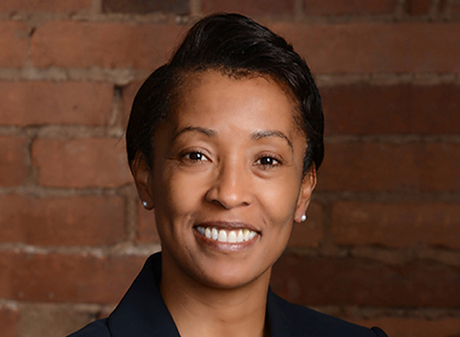Disaggregated Data as a Tool of Inclusion

Rhonda Vonshay Sharpe, founder and president of WISER
Disaggregating data—dividing data into samples to share nuances and outcomes of different groups of women—is critical to Rhonda Vonshay Sharpe, founder and president of the Women’s Institute for Science, Equity and Race (WISER). The nonprofit’s mission is to expand women-focused research on the needs of Asian, Black, Hispanic, Native American and multiracial women.
In a Women in Economics Podcast Series episode, Sharpe discussed the importance of data disaggregation and its role in creating an inclusive environment. (The episode includes a transcript of the interview.)
“With the current pandemic, disaggregating data is important to get the full picture of the impact of COVID 19, which includes things like unemployment, who is working an essential job, who is getting tested and treated, who has lost their lives, who’s benefiting from the CARES Act or who’s going to be harmed because it’s not extended,” she said.
The WISER founder also explained that disaggregating data leads to better policy and saves lives.
“I’ll often tell people things like if you look in the health care industry, we know that Black women are more likely to die from breast cancer but not necessarily have a higher incidence of that,” she noted. “And the reason we know that is because the data was disaggregated by race and ethnicity and gender, not just women and breast cancer.”
Another key goal of WISER is to shift the conversation to be inclusive, because inclusive conversations lead to better public policy, Sharpe added.
A lack of inclusion is what spurred Sharpe, who has a doctorate in economics/mathematics and serves on the board of the International Association for Feminist Economics, to found WISER.
“I was tired of reading reports in which I would see Black and Hispanic women between the commas, or I would see these reports, and there would be a paragraph about Black and Hispanic women, and it was always deficit based. So you’d get ‘women, except Black and Hispanic women,’” she noted.
Additional Resources
- Women in Economics: Rhonda Vonshay Sharpe
- On the Economy: Seeking and Giving Advice
- On the Economy: Combining Economics with Policy Research
Citation
ldquoDisaggregated Data as a Tool of Inclusion,rdquo St. Louis Fed On the Economy, Dec. 17, 2020.
This blog offers commentary, analysis and data from our economists and experts. Views expressed are not necessarily those of the St. Louis Fed or Federal Reserve System.
Email Us
All other blog-related questions

